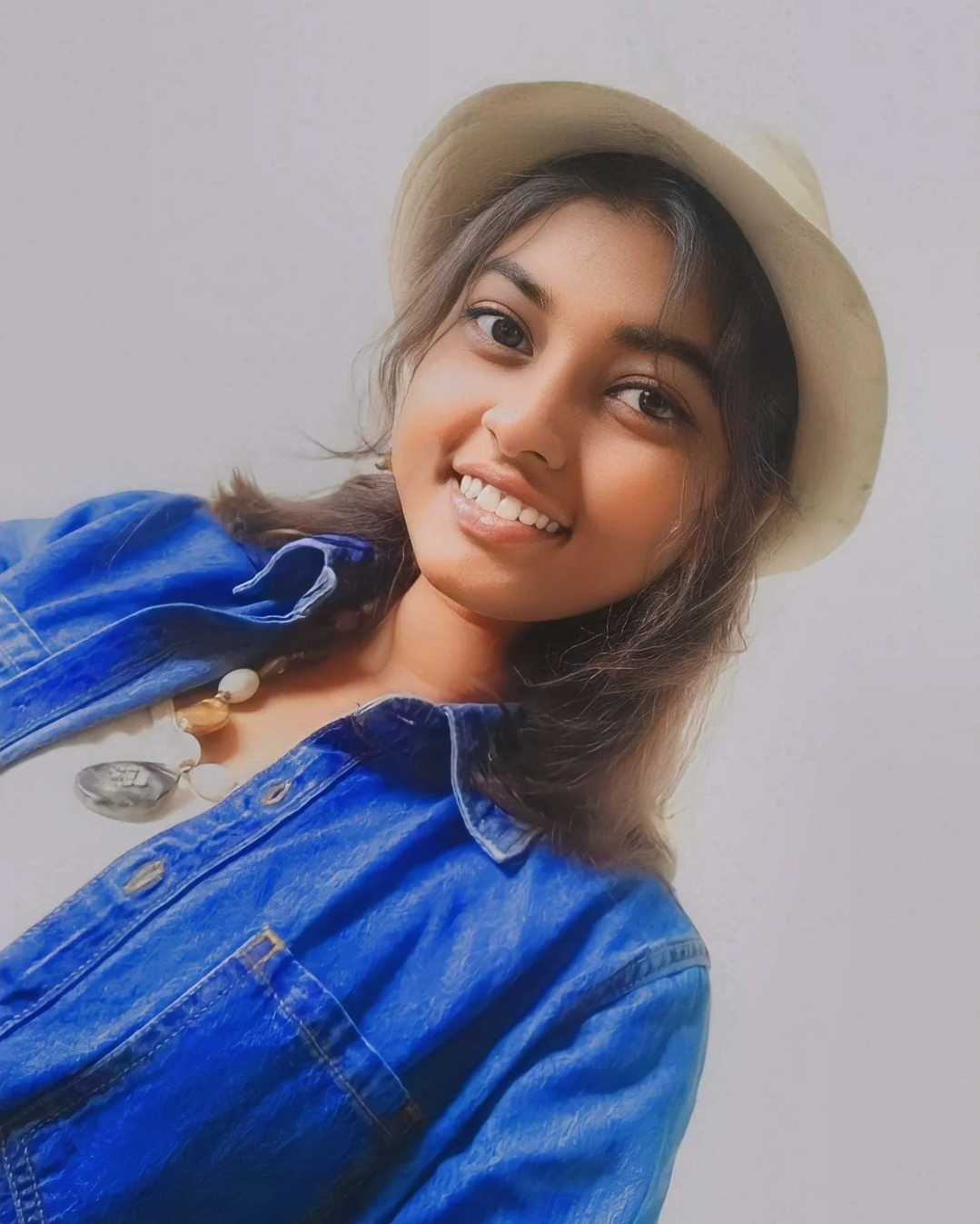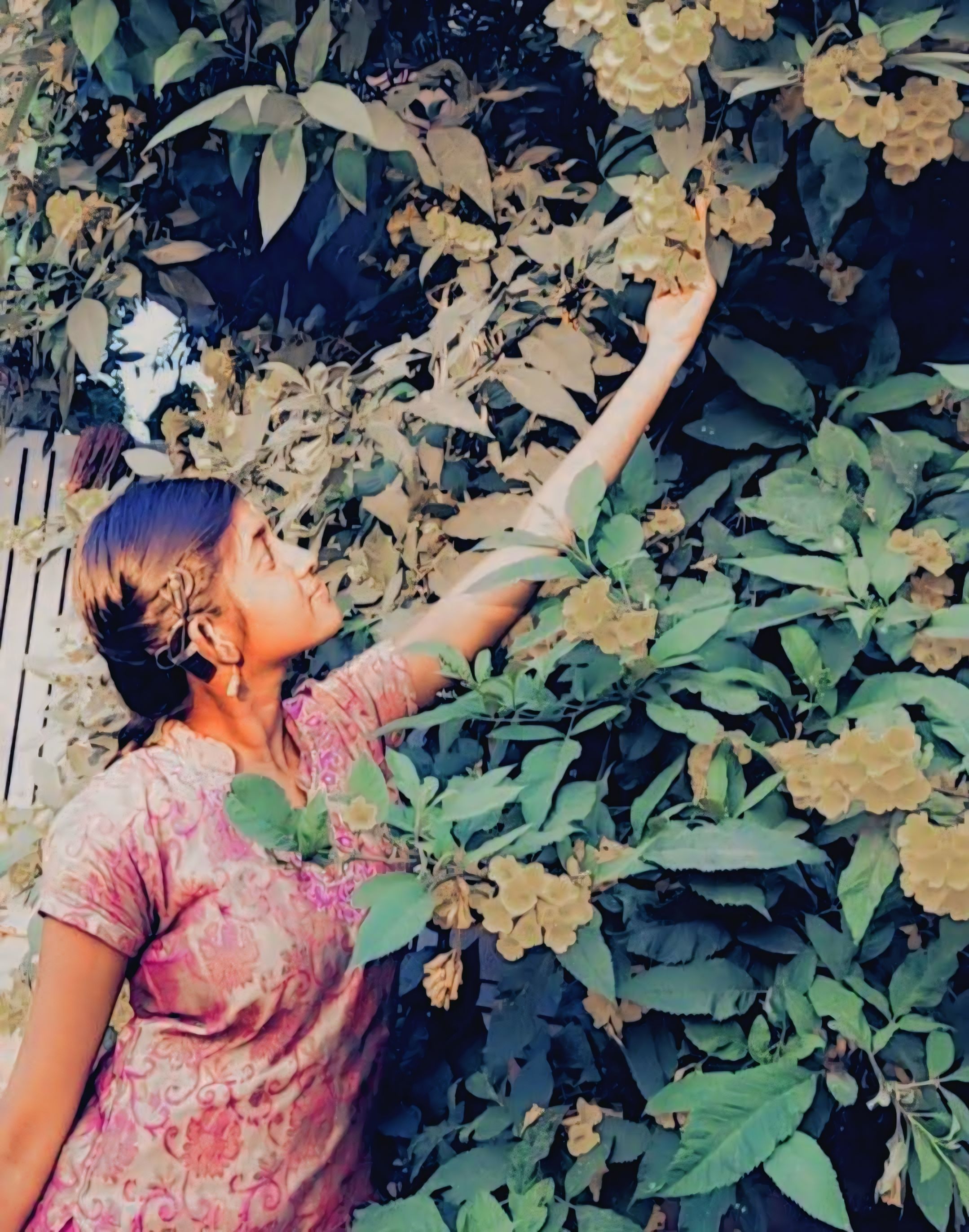Cochlear Journey: Rediscovering Sound and Redefining Identity
By Kalaimathy S. L., Tamil Nadu, India
Hello, I’m Kalaimathy S L, 22 years old and proudly from Tamil Nadu, India. I was born deaf due to a genetic condition, and my life began in silence.
Not the peaceful kind, but a profound, unyielding quiet that shaped my earliest understanding of the world. While other children learned through sound, silence was my first language. Yet, my parents held a vision for me that transcended this reality. At the age of five, I received a cochlear implant, a tiny marvel that didn’t just give me access to sound but launched me into a lifelong journey of learning, resilience, and rediscovery.
The Sound of Struggle:
Hearing, at first, wasn’t magical. It was overwhelming, a storm of strange vibrations and unfamiliar noise. I tried to throw the device away, frightened by this sudden chaos. But my parents stood by me, patiently guiding me to make sense of this new world.
My early years were spent at Kasturba Gandhi Oral School for the Hearing Impaired in Coimbatore, where every word felt like a mountain to climb, but I learned to make friends with them. My father even used special techniques, speaking to me in the dark or over the phone to help my brain focus on sound alone. Our home became a place of daily therapy, filled with hope and determination.

A Classroom of Challenges:
After receiving my cochlear implant, I moved into mainstream education, which brought new challenges. My peers didn't understand what a cochlear implant was; some even thought it was a music device or mobile phone. I faced bullying, was pushed down, and once, my device was thrown away by a student. These moments left me hurt and questioning myself.
In school, teachers spoke too fast, turned away while explaining, or dictated notes at lightning speed. My brain worked twice hard to keep up, and by the end of the day, I was often mentally drained, a condition known as listening fatigue.
I missed announcements. I asked classmates for help, but some became irritated or avoided me altogether. I learned to mask, smile and nod even when I didn’t fully understand, just to avoid being seen as different. But inside, I felt the loneliness of being left out.
The only time I felt fully included in a classroom was during the pandemic, when online classes came with live captions. For the first time, I could follow every word. That moment showed me the power of accessibility.
Friendships and Isolation:
Beyond the classroom, friendships presented their own unique hurdles. In group conversations, people talked fast, laughed suddenly, or changed topics without warning. I often fell behind, and asking, "What was the joke?" sometimes annoyed friends or made them dismiss me with "Never mind." This led to a profound sense of isolation.
I remember the pain of seeing classmates I considered "close friends" go on trips without me, never inviting or even mentioning it. During the pandemic, many new classmates chatted with me online, unaware of my deafness. But after we returned to campus and they found out, something changed. They slowly distanced themselves and acted like strangers. These experiences taught me that true friendship isn't about convenience, but about effort and connection. While many connections felt fragile and based on superficial understanding, the two who truly understood me became my world. They showed me that friendship is about how deeply you care.
Expression Beyond Words:
Amid these struggles, I discovered my strengths. I found joy and freedom in art, dance, music, and performance. I trained in Bharatanatyam for over 15 years and performed at temples, colleges, and even Nehru Stadium, winning more than ten prizes. I explored drawing, playing the keyboard, acting, and public speaking. Indeed, when words failed, rhythm spoke.
But despite my achievements, I faced discrimination. I was denied entry into Scouts and Karate due to assumptions about my hearing. I struggled to obtain a driver’s license, even after being cleared by a medical board. At 15, during my 10th public exam, I was placed in a separate room without warning. The next day, my principal said, “You’re a special student, so you were given a separate room and one extra hour.” That was the first time I heard anything about extra time. No one told me before the exam. In the next paper, staff took my sheet before I could finish. I cried all day, but instead of taking responsibility, the principal blamed me.
Years later in college, a staff member removed my sound processor during an exam without asking. I couldn’t hear and had to wait until she confirmed with my advisor to get it back.
In both school and college, I wasn’t asking for special treatment — just basic respect and understanding. But I was often met with confusion, exclusion, and blame.
These experiences ignited a fire within me. In job interviews, I’ve been rejected simply because of my deafness, without even being given a chance.

From Hiding to Pride:
For a long time, I tried to hide my cochlear implant. I covered it with my hair, with shawls, anything to avoid stares and questions. But one day, my mother said something simple yet powerful: “People wear glasses to see. You wear your device to hear. There’s nothing wrong with that.” That moment changed everything. I began to wear my processor with pride, like a piece of jewellery, like a part of me. Silence taught me strength. It taught me to listen, not just to others, but to myself.
Life in Between:
I live in the space in between, not fully deaf, not fully hearing. It’s a unique place, full of challenges and wisdom, offering a perspective few truly grasp. I may struggle with fast conversations, noisy rooms, or unclear announcements. But I’ve learned to navigate the world in my own way, with adaptability, creativity, and quiet strength.
Today, I use my voice, one shaped by silence, to raise awareness through my platform, “Voice Within Silence” (https://voicewithinsilence1.blogspot.com/). I write, speak, and advocate for those who are still unheard. I want a world where every child with a hearing loss is given the same belief and support my parents gave me. Where inclusion isn’t an afterthought, but a mindset.
From My Heart to Yours:
I didn’t just learn to hear, I learned to survive, to express, and to shine. I trained myself to speak when silence was easier. I danced when the world doubted me. I kept walking, even when doors were closed.
Because I know now: I am not broken. I am becoming. I live in between, but I belong to both worlds. Art became my voice. Rhythm became my language. Struggle became my teacher. Every sound I hear, every word I speak, carries the strength of everything I’ve overcome.
So, to anyone who feels unheard, unseen, or underestimated: You don’t need to be perfect.
You just need to keep going.
Because your story, like mine, holds power beyond words. Let’s go beyond silence, together.
I am a SuperHEARo. And I’m ready to help the world hear differently.
With Hope,
Kalaimathy S L
July 2025